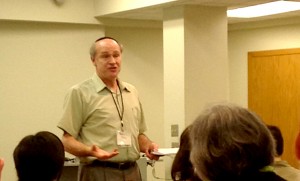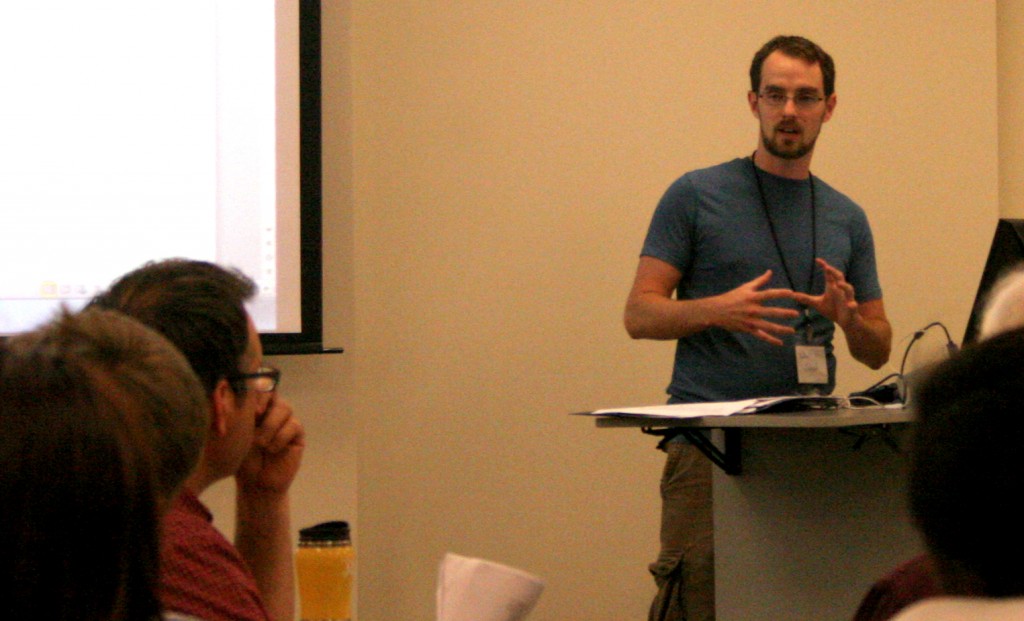Scriptural scholars from the University of Virginia joined peers from others parts of North America at Eastern Mennonite University during the third week of June (2012) to experience “Mennonite influence, faithfulness and peacebuilding,” said Peter Ochs, co-founder of the annual Scriptural Reasoning Training Tour.
“The Mennonite community’s dedication to peace is a significant contributor to the practice of ‘scriptural reasoning,’” said Ochs, a religious studies professor at the University of Virginia (UVa). “Some of our central leaders and participants are from EMU.”
Two dozen people attended the two-day event at EMU. UVa hosted the first three days of the seven-day training tour while George Mason University hosted the final stop.
Founded in 1995 by Ochs and David Ford, Regius Professor of Divinity at Cambridge University, scriptural-reasoning groups are scattered throughout the world, including universities in Canada, South Africa, and the Middle East.
Sessions involve Jews, Christians and Muslims reading passages from the Torah, Bible and Quran that are addressing a single theme, such as fire and forgiveness. This week’s theme, music, saw participants looking at the symbolic nature of music and how passages portray a musical quality, especially when they move us to action.

“It can become more than a theme,” said Ed Martin, director of EMU’s Center for Interfaith Engagement. “It can become a communal experience, sharing the whole creation of music.”
Ochs agreed, adding, “You hear and study the passages and discover an inspirational significance.”
There is no “how-to” manual for scriptural reasoning, said Ochs, rather experiences by the participants are discussed in connection with passages read aloud. In addition, grammatical constructions, tone and narrative structure are used to deepen the conversation. Sessions can also dive into controversial and sensitive topics addressed by scripture, such as Jews as “chosen people” and the resurrection of Jesus.
“We believe where the practice of scriptural reasoning takes place is part of the experience, and sharing this environment of Mennonite influence and ways of faithful peace and patience celebrates that,” Ochs said, a Judaic scholar who began doing scriptural reasoning with EMU scholars about six years ago. “The significance of training here completes the circle.”
More information on scriptural reasoning
The UVa Library hosts the Journal of Scriptural Reasoning and related forums that provide guidance on scriptural reasoning. Peter Dula, chair of Bible and religion at EMU, is on the editorial board for the journal.
